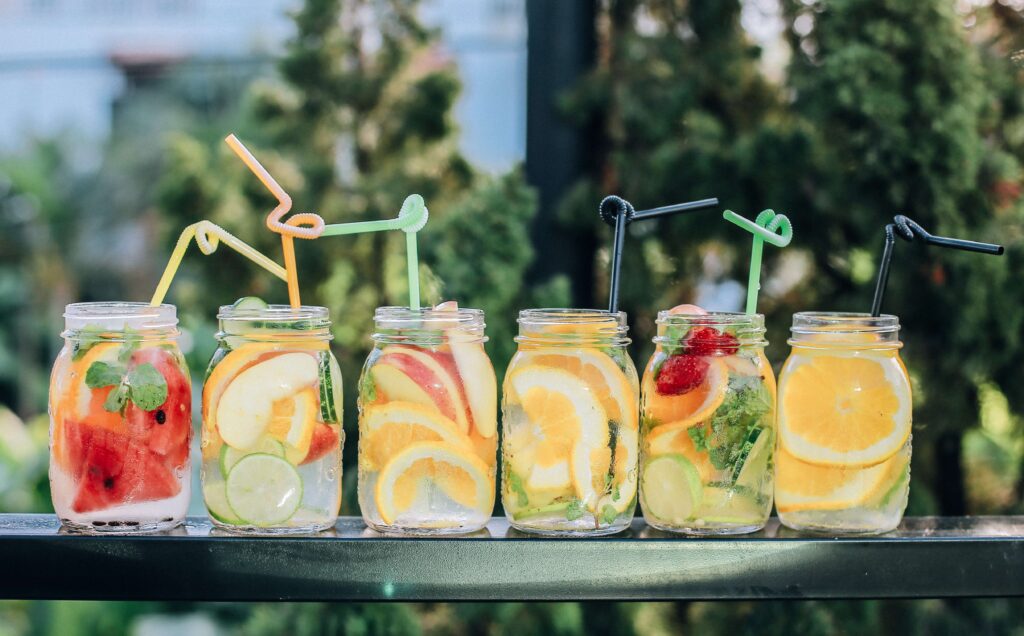It is well known that alcohol can negatively affect your mental health and wellbeing, particularly during a hangover. According to doctor of clinical nutrition, Brooke Scheller, our hormones, gut health, nutrient absorption and brain health are affected by alcohol use too.
Staying on top of your health while still enjoying a drink or two is a challenge. Commonly, people cite alcohol’s high calorie count as reason enough to cut down on booze, but there are plenty of other reasons to reduce your alcohol intake in the name of health.
In a recent study from the University of Sterling, 59.9% of people reported ‘always’, ‘often’ or ‘sometimes’ seeing health-related information, messages or warnings on alcohol packaging. Although these health warning signs might not currently have an enormous impact on changing people’s drinking habits, it’s a small step in highlighting the importance of keeping our health in mind when drinking.
With this in mind, Dry spoke to Brooke Scheller, who specialises in using food and nutrition to change people’s relationship with alcohol. Scheller, who has recently celebrated one year of sobriety, shared some insight into the health risks associated with drinking and offered some tips for how to cut down on drinking and promote health instead.
Dry: Why have you made the choice to go sober?
Brooke: After being a long time drinker, in June 2021 I finally decided to remove alcohol from my life for good. I realised how much it was affecting both my physical and mental health. I had just authored a chapter in a textbook that discussed using nutrition and dietary supplements for treating substance use disorders and it inspired me to focus my functional nutrition expertise on changing my relationship with alcohol.
Dry: Can removing alcohol from your life change your emotional and/or physical health?
Brooke: Absolutely! While the negative effects of alcohol are typically seen as short-term symptoms, like a hangover, alcohol affects your body in many ways. When you drink on a regular basis it depletes many important vitamins and minerals, negatively affects your gut health and changes the structure and function of the brain. Many people find that symptoms like depression and anxiety lessen and they feel better physically once they stop drinking. If you are experiencing any chronic illnesses or negative health symptoms, there’s a good chance drinking alcohol is actually making those symptoms worse.
Dry: What about hormones? Are they affected by alcohol use?
Brooke: This is an area I receive many questions on and the answer is yes. Alcohol effects everything from sex hormones like oestrogen and testosterone, to stress hormones like cortisol and even your hunger hormones. If you’re experiencing hormonal imbalances, alcohol is likely a contributor. A study published in 2021 showed that alcohol consumption reduces the probability of conceiving for those looking to become pregnant.
Dry: How is alcohol linked to nutrition?
Brooke: There are many ways to look at the intersection of alcohol and nutrition. First, nutrition is all about the metabolism of substances in your body. When you drink alcohol, it harms your gut health, compromises your nutrient absorption, impairs your brain’s production of ‘feel good’ hormones, damages your liver and so much more. When you eliminate alcohol, you can use certain foods and nutrients to restore balance and heal the effects of long-term alcohol use.
Dry: So can alcohol cause nutrient deficiency?
Brooke: This is one of the most well-studied areas of alcohol and nutrition. Alcohol is known to cause depletion in most of your vitamins and minerals – everything from B complex vitamins, vitamin C, vitamin D, magnesium, zinc, calcium, protein, omega 3s and more. This is due to how alcohol disrupts nutrient absorption in the stomach and small intestine, as well as the fact that alcohol’s toxic nature requires additional nutrients to process and remove alcohol from the body.
Dry: Is poor nutrition linked to the desire to drink more alcohol then? For example, could bad foods cause you to crave it more because you’re not looking after your gut?
Brooke: Yes, this can absolutely be a consideration. When you eat a diet that is high in sugar and refined carbohydrates and low in protein, veggies and other important nutrients, you are more likely to crave foods that raise your blood sugar – including alcohol. Plus, these foods change the balance of the good and bad bacteria in our gut and cause you to crave sugar and alcohol more frequently.
Dry: For people who don’t wish to cut out alcohol entirely, what do you recommend they do?
Brooke: For many people, the goal is just to cut back or limit the amount of alcohol they consume. This is often easier said than done because once you have one drink, it sets up a blood sugar reaction that can cause you to crave another and another. One simple way to reduce how much you crave alcohol is to make sure you consume protein throughout the day in all of your meals and snacks. The protein balances your blood sugar, preventing the blood sugar drops that lead to craving sugary alcoholic drinks.
Featured picture: Kaizen Nguyễn on Unsplash

